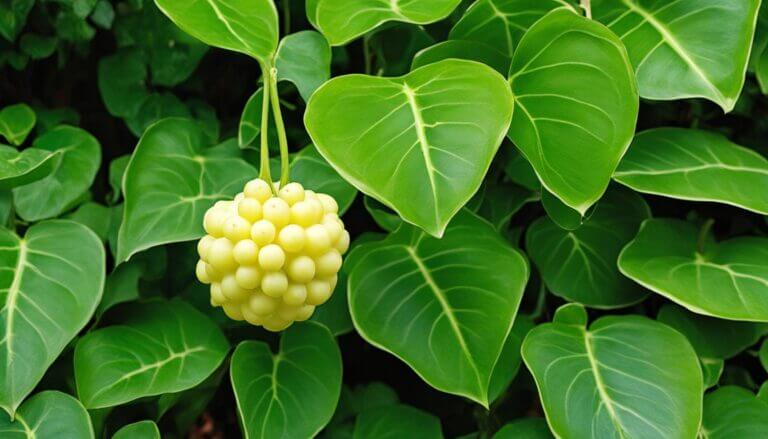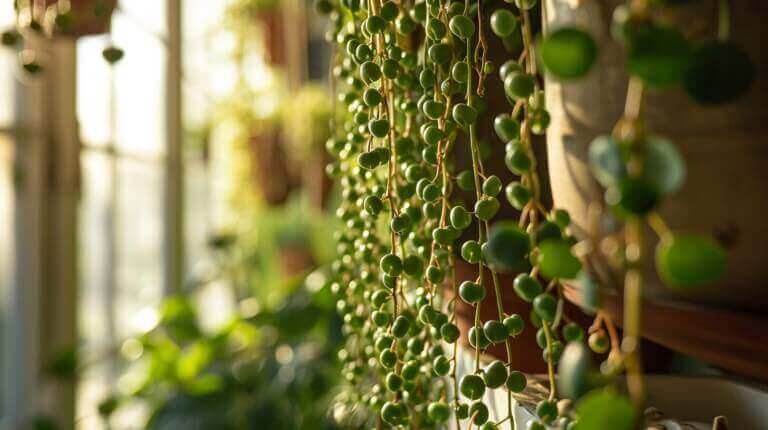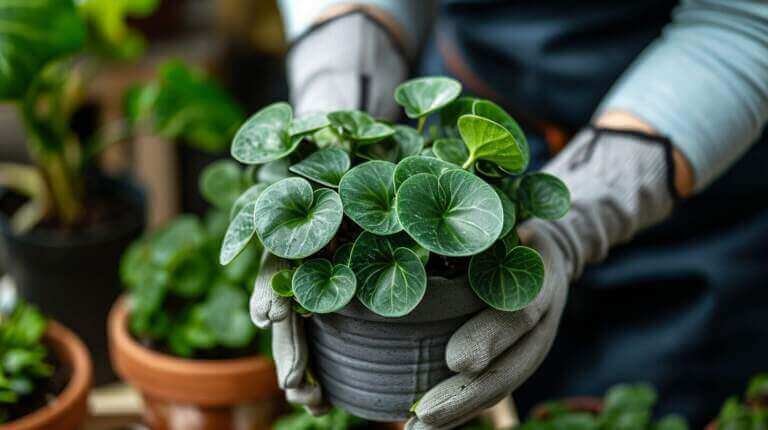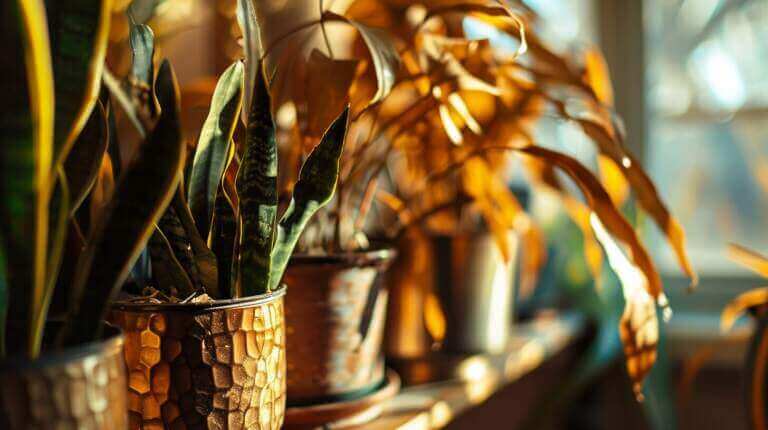Are Nerve Plants Toxic To Cats and Dogs? Safety Tips For Cat and Pet Owners With Fittonia Albivenis Houseplant
As a pet owner, it’s natural to be concerned about the safety of the plants you bring into your home. Nerve plants, with their beautiful patterned foliage, are a popular choice for many plant enthusiasts. But are they toxic to cats, dogs, and other pets?
The good news is that nerve plants, also known as Fittonia argyroneura, are non-toxic and safe for your furry friends to be around. From their leaves to their stems, every part of the plant poses no harm to both humans and animals alike. However, it’s important to remain cautious, as some cats may still be curious and attempt to nibble on the leaves, which could damage the plant.
To ensure the well-being of your pets and the longevity of your nerve plant, it is recommended to keep the plant out of their reach and monitor their behavior around it.
Key Takeaways:
- Nerve plants, or Fittonia argyroneura, are non-toxic and safe for cats, dogs, and other pets.
- While safe, cats may still be curious and chew on the leaves, so it’s best to keep the plant out of their reach.
- Monitor your pets’ behavior around the plant to ensure their safety and the plant’s well-being.
- Nerve plants are just one of many pet-friendly houseplant options for animal lovers.
- Stay informed about toxic plants to avoid any potential harm to your pets.
Non-Toxicity of Fittonia Albivenis
Scientific Name and Family of Fittonia Albivenis
Fittonia Albivenis, commonly known as the nerve plant, belongs to the Acanthaceae family. This small and beautiful plant is known for its vibrant foliage and is a popular choice among plant enthusiasts.
Confirmation of Non-Toxicity to Dogs, Cats, and Horses
For pet owners, it is essential to know whether a houseplant is toxic to their furry friends. The good news is that Fittonia Albivenis is non-toxic to dogs, cats, and horses. This means that even if your pets come into contact with the plant or accidentally ingest a few leaves, it will not harm them.
Toxicity in plants often arises from chemical compounds or substances present in their leaves, stems, or sap. However, Fittonia Albivenis does not contain any toxic principles that can be harmful to pets.
While it is important to note that the Fittonia plant itself is non-toxic, this does not mean that other plants in your home may not be toxic to your pets. It is always advisable to thoroughly research the toxicity of each plant before introducing them into your living space.
Some common household plants, such as ivy plants from the Hedera genus, can be poisonous to cats and dogs. Therefore, it is crucial to ensure the safety of your pets by carefully selecting pet-friendly plants like Fittonia Albivenis.
Pet Safety Tips for Fittonia Albivenis Owners
Placement of the Nerve Plant in Pet-friendly areas
When it comes to keeping pets safe around a Fittonia Albivenis, proper placement of the plant is crucial. Here are some tips to ensure your furry friends stay safe:
- Elevated areas: Consider placing your nerve plant in areas that are out of reach for your pets, such as high shelves or hanging planters. This will prevent them from accidentally knocking the plant over or nibbling on the leaves.
- Pet-free zones: Designate certain areas of your home as pet-free zones. This can be a room or a specific area where you keep your Fittonia Albivenis. Make sure the door is always closed to prevent your pets from accessing the plant.
- Avoid placing the plant in their favorite spots: If your pet has a specific spot where they like to relax or play, avoid placing the nerve plant nearby. Pets are naturally curious, and they may be tempted to investigate the plant if it’s within their reach.
Measures to prevent accidental ingestion or contact
While Fittonia Albivenis is non-toxic to pets, it’s still important to take precautions to prevent accidental ingestion or contact. Here are some safety measures to follow:
- Supervise interactions: If your pets are particularly curious or prone to chewing on plants, it’s best to supervise their interactions with the nerve plant. This way, you can intervene if they show interest in nibbling on the leaves.
- Provide alternative outlets for chewing: Some pets may have a natural inclination to chew on plants. To redirect their behavior, provide them with safe and appropriate chew toys. This will help satisfy their chewing instincts without the risk of ingesting harmful substances.
- Regularly inspect the plant: Conduct regular inspections of your Fittonia Albivenis to ensure it remains healthy and free from any damage. If you notice any chewed leaves or signs of pest infestation, take necessary measures to address the issue promptly.
- Ensure proper ventilation: Good airflow and ventilation in the room where the nerve plant is located can help prevent the buildup of moisture. Excessive moisture can attract pests, which may pose a risk to your pets. Use fans or open windows to maintain proper airflow.
- Train your pets: If you have a young puppy or kitten, it’s essential to train them to respect boundaries and avoid chewing on plants. Positive reinforcement training techniques can be used to redirect their attention and reward them for appropriate behavior.
Remember, while Fittonia Albivenis may be safe for cats, dogs, and horses, every pet is different. Some may have allergies or sensitivities that could still cause a negative reaction. If you notice any unusual behavior or symptoms after your pet’s interaction with the plant, consult your veterinarian for advice.
Pet-Friendly Houseplants: Safe Options for Cats and Dogs
If you’re a pet owner and want to have houseplants in your home, there are plenty of safe options to choose from. Having greenery indoors can provide numerous benefits, such as improving air quality and creating a calming atmosphere. It’s important, however, to select plants that are non-toxic to cats and dogs to ensure the safety of your beloved pets.
Here are some pet-friendly houseplants that are known to be non-toxic to cats and dogs:
- Spider Plant (Chlorophytum comosum) – Spider plants are not only safe for pets but also easy to care for. They have long, arching leaves that are green with white stripes, making them an attractive addition to any space.
- Areca Palm (Dypsis lutescens) – Also known as the Butterfly Palm, this plant is non-toxic and adds a tropical touch to your home. It features feathery, arching fronds and can thrive in bright, indirect light.
- Boston Fern (Nephrolepis exaltata) – Boston ferns are lush, green plants that are safe for pets. They prefer high humidity and indirect light, making them ideal for bathrooms or other areas with moisture.
- Calathea (Calathea spp.) – Calatheas are known for their vibrant, patterned leaves. They come in various colors and patterns, adding visual interest to any room. These plants thrive in low to medium light conditions.
Remember, while these plants are considered safe for pets, it’s always a good idea to monitor your furry friends and make sure they don’t show any signs of curiosity towards the plants. If you notice your pets chewing on the leaves or showing any adverse reactions, it may be best to remove the plants from their reach.
By selecting pet-friendly houseplants, you can enjoy the presence of greenery in your home without worrying about the safety of your cats and dogs.
| Plant | Description |
|---|---|
| Spider Plant (Chlorophytum comosum) | |
| Areca Palm (Dypsis lutescens) | |
| Boston Fern (Nephrolepis exaltata) | |
| Calathea (Calathea spp.) |
Plants to Avoid: Toxic Plants for Cats and Dogs
As much as we love to surround ourselves with beautiful plants, it’s important to be aware of the potential danger they can pose to our furry friends. There are certain plants that are toxic to cats and dogs, and it’s crucial to keep them away from our pets’ reach to ensure their safety.
One of the common toxic plants for cats is the lily. While they may look elegant and fragrant, lilies can be extremely harmful if ingested by cats. Even a small amount of lily ingestion can lead to kidney failure, so it’s best to avoid having lilies in your home if you have a feline friend.
Dogs, on the other hand, should be kept away from plants such as azaleas and rhododendrons. These vibrant flowering shrubs can cause vomiting, diarrhea, and even heart problems in dogs. Another plant to be cautious of is the sago palm, as it can lead to severe liver failure if ingested by our canine companions.
Other dangerous houseplants that should be kept away from pets include philodendrons, pothos, dieffenbachia, and snake plants. These plants can cause gastrointestinal upset, irritation of the mouth and throat, and, in some cases, even difficulty breathing. It’s always better to be safe than sorry, so it’s best to avoid having these plants in your pet-friendly space.
FAQ
Are nerve plants toxic to cats and dogs?
No, nerve plants are non-toxic and safe for cats, dogs, and other pets to be around. All parts of the plant, including the leaves, are safe for both humans and animals.
Should I be concerned if my cat chews on the leaves of a nerve plant?
While nerve plants are safe to have around, cats may still be curious and may chew on the leaves, potentially damaging the plant. It’s recommended to keep the plant out of reach of pets and monitor their behavior around the plant.
Is Fittonia safe for cats and dogs?
Fittonia, also known as the nerve plant, is a popular houseplant that is safe for cats and dogs. It’s a non-toxic plant that pet parents can confidently display in their homes.
Can Spider plants harm my dog or cat?
Spider plants are known to be non-toxic to pets, including both dogs and cats. They are a pet-safe plant choice for any indoor environment.
Are Ferns, including Boston Ferns, safe for pets?
Yes, Boston Ferns are safe for dogs and cats. They are non-toxic to pets and are often recommended as a safe indoor plant for pet households.
What should I know about Bromeliads?
Bromeliads are tropical plants known for their vibrant bloom and green leaves. They thrive in a humid environment and are safe for cats and dogs.
Are Orchids safe for my pets?
Yes, Orchids are non-toxic to pets. They require bright light and a humid environment to bloom, making them a beautiful and safe addition to any home.
Is Peperomia a good choice for homes with pets?
Peperomia is a pet-safe plant that is known for being low-maintenance. It’s a popular houseplant that is safe for dogs and cats.







